AAP Calls BMC Commissioner’s claims of proposed polyclinics with Mohalla clinics as comparison of apples and organges; points out that Shiv Sena couldnt even get the basics right in 30 years.
The Aam Aadmi Party today asked BMC Commissioner Iqbal Chahal to fix Mumbai’s healthcare system beginning with primary healthcare and offerred to help BMC with the technical expertise, through the Delhi Govt. The party was reacting to Iqbal Chahal’s statement where he allegedly claimed to have studied the Delhi Model and had claimed that BMC polyclinics will be better than Delhi’s Mohalla clinics.
BMC has 187 public dispensaries, which are supposed to function as primary health centres. A vast majority of them are disfunctional due to poor infrastructure and flawed operations. The BMC hasn’t been able to fix something as basic as prmary health care, over the last 30 odd years.
Mumbai’s BMC hospital’s bed capacity has remained stagnant, despite a steep rise in population. For anything and everything, the poor are compelled to go to peripheral and tertiary hospitals, which leads to their capacity being overwhelmed and quality of service deteriorating.
“For the record, Delhi has a three tier public health system. Primary healthcare or Mohalla Clinics, Polyclinics or Secondary Healthcare and Tertiary Hospitals. Mohalla clinic. Delhi has Universal Free and Quality Healthcare for all it’s citizens. A mohalla clinic is at an avg distnce of 1km from the community that it was built to serve. Diagnostic tests are free, patient records are digitized, doctors are remunerated handsomely and should it take more than 30 days for a government facility to action a prescibed operation, the same can be availed free of cost, in a pvt facility of the patient’s cost.
Iqbal Chahal’s comparison is one of apples with organges and that of wilful obfuscation. The fact is that healthcare has never been BMC’s priority. They have actually turned it, into a money making racket, like everyother department, by outsourcing big ticket items.
Delhi’s Healthcare Model has won global acclaim and UN accolades. Why can’t it be implemented in Mumbai in toto? We will be more than happy to share Delhi Govt’s expertise with the BMC for the same.”, said Preeti Sharma Menon, AAP National Executive Member and Mumbai Prabhari.
An appeal has been filed in the Supreme Court challenging the direction of the Karnataka High Court that has asked students not to insist on wearing any cloth on campuses of educational institutions which can instigate people, till the matter is resolved.
The plea filed by a student has sought a stay on the direction of the high court, which is hearing the hijab issue, as well as the proceedings going on before the three judge bench.
The appeal contended that the high court has sought to curtail the fundamental right of Muslim student women by not allowing them to wear the hijab.
The high court has posted the matter for Monday and also said educational institutions can resume classes for students.
The three-judge full bench of Chief Justice Ritu Raj Awasthi, Justice J M Khazi and Justice Krishna S Dixit, which was formed on Wednesday, also said it wants the matter to be resolved at the earliest but till that time peace and tranquillity is to be maintained.
“Till the disposal of the matter, you people should not insist on wearing all these religious things,” Awasthi had said.
“We will pass an order. Let the schools-colleges start. But till the matter is resolved, no student should insist on wearing religious dress”, he had said.
On Wednesday, Justice Dixit, who was hearing the case, referred the case to Justice Awasthi’s consideration with a view that a larger bench may look into the case.
The Hijab row started in December end when a few students started coming to a government pre-university college in Udupi wearing Hijab. To protest against it, some Hindu students turned up wearing saffron scarves.
The row spread to other educational institutions in different parts of the State, and the protests took a violent turn at some place earlier this week, prompting the government on Tuesday to declare three days holiday for the institutions. PTI.
The National Green Tribunal has slapped a penalty of Rs 25 crore on Vedanta group firm Hindustan Zinc Ltd for violation of environmental norms in Rajasthan’s Bhilwara district.
The green panel said environmental law violations cannot be taken lightly when the violators are entities like the present project proponent (PP) and victims are poor villagers.
The NGT said the victims of damage are unspecified number of persons spread over in more than six panchayats — Bherukhera, Agucha, Parasrampura, Kalyanpura, Kothiya, Balapura and others — in Hurda block.
A case is made out for requiring the PP to provide for compensation for the past violations and bear the cost of remediation, apart from complying with recommendations of the Committee.
Having regard to the violations/damage by the project proponent and overall estimated cost of ecological rehabilitation and restoration and financial capacity of the PP, we require the PP to deposit a sum of Rs 25 crore with the District Magistrate, Bhilwara within three months to meet the cost of remediation measures, a bench headed by NGT Chairperson Justice A K Goel said.
The NGT also directed that a joint committee of the Central Pollution Control Board, state pollution control board and District Magistrate, Bhilwara with the assistance of any other experts may prepare a restoration plan for remediating the soil and quality of ground water in the area, apart from undertaking health improvement programme for the inhabitants and the cattle.
The action taken may be placed on the website of the District Magistrate, Bhilwara and its execution duly monitored.
The remediation works may be got executed by an appropriate agency utilising the amount deposited by the PP and the PP itself will have liberty to get the such work executed of restoration/rehabilitation on its own or through any other agency, if found proper by the joint committee in the circumstances, the bench said .
The NGT said that a public awareness group may be setup jointly by the DM and the PP to list out the issues requiring further action.
The amount deposited will be utilised for executing the plan within one year, associating all stake holders, including the PP and civil society in a suitable manner, subject to overall supervision of the Committee, the bench said.
The joint committee may have a report of status of compliance as on March 31, 2023 filed before the Registrar General of this Tribunal by e-mail.
The tribunal was hearing a batch of pleas alleging violation of environmental norms by Hindustan Zinc Ltd in executing mining lease of lead, zinc and associated minerals in the villages covering nearly an area about 1,200 hectares of mining land.
A cordial relation between the Bar and the Bench is absolutely necessary for smooth running of the administration of justice in the courts, the Supreme Court has said.
A bench comprising Justices M R Shah and B V Nagarathna made the observation while disposing of an appeal filed by a lawyer, who had made derogatory comments against a judge of the Uttarakhand High Court.
Noting the conduct of the petitioner advocate, the high court had referred the matter to the Bar Council for taking action against him.
The advocate had approached the top court against the judgement of the high court.
For smooth running of the administration of justice in the courts, a cordial relation between the Bar and the Bench is sine qua non and is a must. No advocate is benefited by unruly behaviour in the Court.
Ultimately it spoils the atmosphere in the court room and ultimately may spoil the case of the litigant and the litigant may have to suffer for no fault of him, the bench said.
The lawyer practising in the Uttarakhand High Court tendered an unconditional apology for what happened before the high court due to which the impugned order came to be passed.
He tendered an unconditional apology and filed an affidavit undertaking before the apex court that in the future no such untoward act shall take place at his behest.
The top court then asked the lawyer to appear before the judge of the high court and tender an unconditional apology and requested the high court to take into consideration the apology.
We are happy to note that the learned single judge has shown the grace and has accepted the unconditional apology tendered on behalf of the petitioner.
By order dated December 24,2021, while accepting the unconditional apology tendered on behalf of the petitioner, the high court has recalled its earlier order, the bench said.
In that view of the matter, no further order is required to be passed by this Court, more particularly, when the learned single judge who has passed the impugned order has now recalled his earlier order by accepting the unconditional apology tendered by the petitioner.
Under the circumstances and in view of the above, the present proceedings shall stand disposed of, the bench said.
The Supreme Court Tuesday refused to entertain a plea seeking directions for advancement of facilities for athletics as also availability of latest training infrastructure and funds to the sports persons saying there has to be individual drive.
A bench of Justices U U Lalit, Ravindra Bhat and Bela M Trivedi said it was aware of the issues but cannot pass any directions to the government.
“Are you into sports? There has to be individual drive in men or women. There are people like Mirabai Chanu, Mary Kom who have risen above adversities and yet shined like anything. This cannot be done under the diktat of the court. We won’t be able to do anything. Either you withdraw or we will dismiss the petition,” the bench said.
The petition was then withdrawn.
The bench also refused to grant liberty to the petitioner to make representation before appropriate authorities and said there was no individual cause or dispute.
“We have all the sympathy and share the same views. Sorry. The petitioner is allowed to withdraw the petition,” the apex court said.
The petitioner advocate Vishal Tiwari submitted that sportspersons have been participating in Olympics for several decades but results are not satisfactory and they need support and facilities from the Centre and states.
Alleging that there was arbitrary allocation of funds, the plea also sought directions for fixing accountability of the money allocated for athletics.
The Delhi High Court Friday declined to grant interim protection from arrest to Navneet Kalra, seeking anticipatory bail in connection with alleged black marketing of oxygen concentrators, agreeing with the reasons given by the trial court while denying him the relief.
A sessions court had on Thursday dismissed Kalra’s anticipatory bail plea, saying the allegations against him were serious and his custodial interrogation was required to “unearth the entire conspiracy”.
“I am persuaded by the reasons given by the trial court which is a valid ground for me not to grant any interim protection now,” Justice Subramonium Prasad said while listing the matter for hearing on May 18.
The observation came after Kalra’s lawyers — senior advocates Abhishek M Singhvi and Vikas Pahwa — urged the court to grant some interim protection if the matter was going to be adjourned till May 18 on the request of Additional Solicitor General (ASG) S V Raju.
Singhvi told the court that the police was actively searching for Kalra and was visiting the homes of its relatives and close friends and it ought not to be done when the high court was hearing his plea for anticipatory bail.
He said he was not in a “begging game” with the authorities and was relying on the high court to protect his client’s rights as the police was out looking for him with a “fanaticism” as if he were a “trophy”.
When the hearing commenced on Friday afternoon, ASG Raju urged the high court to hear it on Tuesday, May 18, as he had a lot of material, like information with regard to shell companies, which he needed to place before it and would require some time.
Heavens would not fall if the matter is taken up on May 18, Raju said, adding that there was no need for giving such a preference, like hearing the case on a holiday, to Kalra as his plea for anticipatory bail is just like that of anyone else seeking the same relief.
Singhvi opposed the contention saying it was an attempt to embarrass the court.
He said one of the charges against his client was that he had overcharged for the concentrators and to investigate it, Kalra’s arrest was not required.
He said that under the Drug Price Control Order (DPCO) 2013, there is a provision for adjusting the overcharged amount or refunding it.
The high court said a number of concentrators were seized from his properties and price stickers, including blank ones, were found at the site.
“Therefore, the question is would it be a violation of the DPCO 2013,” the court said, adding that if so, then can the Essential Commodities Act, under which the DPCO comes, be given the go-by.
It is Kalra’s contention the Essential Commodities Act is not applicable in the instant case as no price was fixed for oxygen concentrators imported from abroad.
The high court also asked Kalra how many concentrators were sold by him prior to seizure of the 105 units from two of his restaurants.
It also said that according to the trial court, Kalra had sold spurious and inferior concentrators at a higher price.
Singhvi said he will provide data regarding sale of the concentrators on the next date.
He also told the high court that if according to the state, the concentrators his client had sold were substandard, then why were the seized units donated to COVID care centres.
The senior lawyer also told the high court that only under ideal conditions would a concentrator give an output of 80-90 per cent, otherwise in normal conditions, it gives around 60-70 per cent.
He also said that his client did not say to any of his buyers that the equipment was of German make and added that most of the concentrators in the market are of Chinese origin,
Kalra had moved the high court for anticipatory bail on May 13 late evening after a sessions court denied him the relief.
After a hearing which went up to 10.00pm, the high court had listed the matter on Friday.
During the previous day’s hearing, the high court had asked Kalra how he could hold on the concentrators or even sell them when he did not have a valid license to manufacture, store, import or sell the same.
While the sessions court denied him anticipatory bail, a magisterial court on May 13 granted bail to an employee of upscale restaurant ‘Town Hall’, owned by Kalra, in connection with the case.
Four employees of Matrix Cellular company, including its CEO and vice president, who were also arrested in the case are also out on bail.
During a recent raid, 524 oxygen concentrators were recovered from three restaurants owned by Kalra — Khan Chacha, Nega Ju and Town Hall — and he is suspected to have left Delhi along with his family. The concentrators are crucial medical equipment used for COVID-19 patients.
Kalra had bought the concentrators from Matrix Cellular which had imported them.
On May 5, a case was registered against Kalra under Section 420 (cheating), 188 (disobedience to order duly promulgated by public servant), 120-B (criminal conspiracy) and 34 (common intention) of the Indian Penal Code.
The FIR, also registered under Essential Commodities Act and Epidemic Diseases Act, for black marketing of oxygen cylinders prescribes maximum punishment for seven years.PTI
Petitioner-1, victim; is the main petitioner and employee of Sanofi India Limited. Petitioner-2, Sushma Maurya is President of Awwaaz Foundation, a duly registered Ngo working for women’s empowerment. There are 8 parties in the Writ Petition.
Respondent-1 is the global Chief Executive Officer of Sanofi. Respondent-2 is incumbent Managing Director at Powai, Mumbai. Respondent-3 is the Asia-Pacific HR. Respondents 4, 5 are senior management seated at Powai, Mumbai. Respondent-6 is Compliance officer of Sanofi, Powai having submitted Internal Complaints Committee (“ICC”) Report. Respondent-7 is the accused sexually harassing Petitioner-1. Respondent-8 is State of Maharashtra, Department of Law and Justice;
Respondents are management personnel of Sanofi, a multinational pharmaceutical company operating globally. Sanofi produces medicines not just for India, but for its global operation, considering low cost of labour and cost of production. It employs more than 3,000 employees across India. Shares of Sanofi are quoted on the Bombay and National Stock Exchanges.
2019 annual reports, p.45 mentions “During the year 2019, the Company i.e. Sanofi received one complaint of alleged sexual harassment which was thoroughly investigated by the Internal Committee. In such matters on the recommendations of Internal Committee, appropriate disciplinary and corrective actions are taken by the Company.”
And, further DIRECTORS’ RESPONSIBILITY STATEMENT, p.44 states “During the year under review, the Statutory Auditors, Cost Auditors and Secretarial Auditors have not reported any instances of frauds committed in the Company by its Officers or Employees to the Audit Committee under section 143(12) of the Act, details of which needs to be mentioned in this Report.”. These false statement in annual reports are fraud executed by Sanofi India on investors. Respondents-1 to 6 have failed in reporting evidences of bribery provided by Petitioner-1 to SFIO (Serious Fraud Investigation Office), which are mandatory requirements for a limited company. Therefore, non-adherence to Sexual Harassment of Women at Workplace, Prevention, Prohibition, and Redressal Act 2013 (the “Act”) by the Respondents-foreign management brutally exploiting Indian resources for exclusive profit making; without conforming to the Act, is blatant abuse of process of the law. Respondent-1,2,3 and 6 are senior executives responsible for implementing the Act in India.
THAT, thereafter, on 09-07-2018 through email, Petitioner-1, Victim whistle-blew unethical corrupt practices of fraud, bribing distributors for increasing sales at Sanofi; wherein, cash was collected from her and other employees forcibly. Petitioner-1, Victim submitted written complaints along with video recording of bribing distributors for increasing sales; to the management. The Companies Act contains provisions to prevent corruption and fraud in companies. Section 177 of the Companies Act requires every listed company to establish a vigilance mechanism for directors and employees to report genuine concerns and to provide for adequate safeguard mechanism against the victimization of persons who use such a mechanism. Albeit, without adequate mechanism in place, Petitioner-1 was victimized sexually by Respondent-7 with the connivance of Respondent-4, and Respondent-5 (both at Senior level). And, later by Respondent-6 (ICC), who subverting justice, conclusively closed, defenestrating the entire case;
PRELIMINARY OBJECTIONS IN ICC NOT ADHERING TO PRINCIPLES OF NATURAL JUSTICE – NO INVESTIGATION, NO FRAMING CHARGES, OPEN AND SHUT CASE:
Petitioner-1, victim approached Petitioner-2, Sushma Maurya of Awwaaz Foundation in dire condition when she was feeling suicidal. Petitioner-1,Victim narrated entire incident from bribery to being sexually harassed, upon which Petitioner-2, a registered NGO working for women’s right took the initiative considering mental and harassed condition issued notice to the police station and SANOFI through their lawyer to provide legal assistance to the victim. Thereafter, Petitioner-1 approached many other private lawyers who were not willing to institute proceedings against the Pharma giant. Considering lack of initiative from lawyers, Petitioner-1 again approached Petitioner-2 insisting that the present matter be pursued with the help of her NGO lawyer who was convinced into contesting the present matter. However, after Sanofi’s false and concocted ICC report, Petitioner-1 fell sick and underwent operation due to depression, ill-health and lack of social support. Considering mental trauma and mental harassment of Petitioner-1, Petitioner-2 agreed to take initiative in present case; understanding of the entire case and various health circumstances of Petitioner-1 consumed considerable amount of time of the present lawyer. Petitioner-2 has agreed to testify whatever knowledge she has pertaining to this case in interest of justice, without prejudice towards none, The matter is before Bombay High Court.

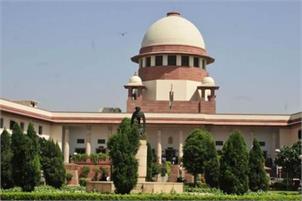
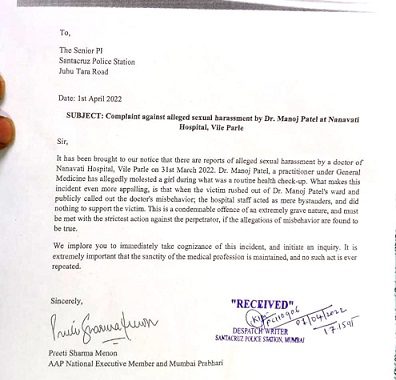
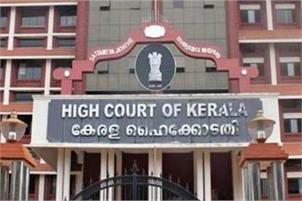
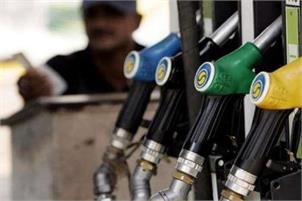
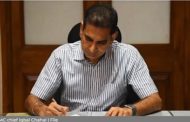

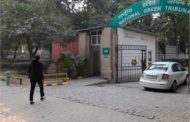
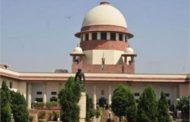
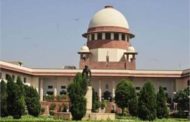
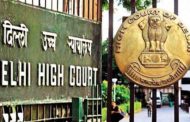



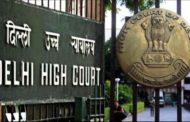





Recent Comments